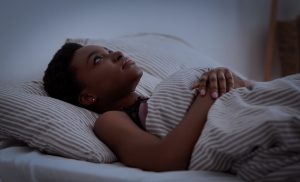 New research suggests that people who suffer from a sleep disorder have an increased risk for hospitalization and mortality caused by COVID-19. The study from Cleveland Clinic has found this relationship, noting that patients with sleep-disordered breathing and sleep-related hypoxia (sleep apnea) do not have an increased risk of developing COVID-19. Still, they do seem to have more severe outcomes from the disease.
New research suggests that people who suffer from a sleep disorder have an increased risk for hospitalization and mortality caused by COVID-19. The study from Cleveland Clinic has found this relationship, noting that patients with sleep-disordered breathing and sleep-related hypoxia (sleep apnea) do not have an increased risk of developing COVID-19. Still, they do seem to have more severe outcomes from the disease.
The study published in JAMA Network Open was conducted to help improve the ability to predict who has a more severe illness so that healthcare workers can help those more at risk prevent severe symptoms.
Advertisement
Researchers believe this new information improved their understanding of the association between sleep disorders and the risk for adverse COVID-19 outcomes. The study concluded with a suggestion that biomarkers of inflammation may mediate the relationship between COVID-19 and sleep disorders.
Researchers used Cleveland Clinic’s COVID-19 research registry for the study, which includes data from nearly 360,000 patients tested for coronavirus. Out of these participants, 5,400 also had available sleep study records.
Researchers were able to examine the sleep study data and COVID-19 positivity to find disease severity. Co-morbidities were accounted for, such as heart and lung diseases, obesity, cancer, and smoking.
It was found that patients with a sleep disorder were 31% more likely to have severe COVID-19 symptoms leading to hospitalization or mortality.
Further Research
The study was able to set the stage for further analysis to identify whether effective early treatments such as PAP (positive airway pressure) or oxygen administration for those with sleep apnea can improve COVID-19 outcomes in patients with insomnia.
The first author of the study, Cinthya Pena Orbea, M.D. said, “Our findings have significant implications as decreased hospitalizations and mortality could reduce the strain on healthcare systems. If indeed sleep-related hypoxia translates to worse COVID-19 outcomes, risk stratification strategies should be implemented to prioritize the early allocation of COVID-19 therapy to this subgroup of patients.”
